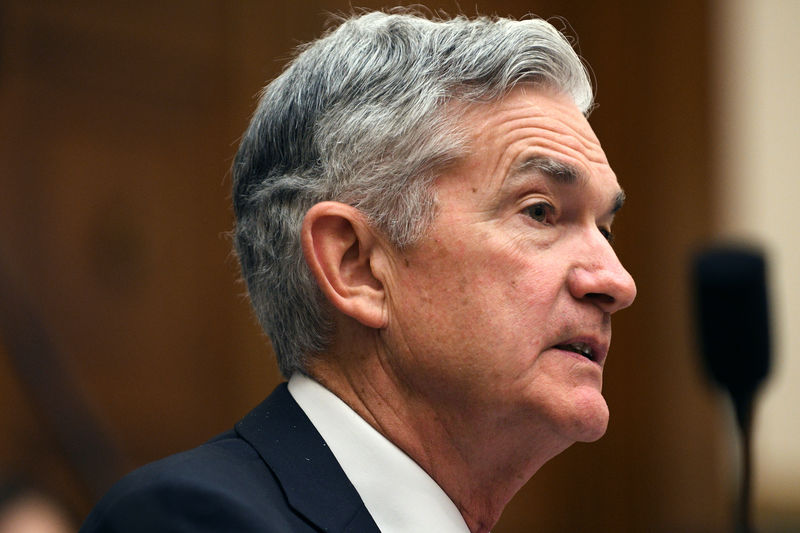By Ann Saphir
(Reuters) - Federal Reserve Chair Jerome Powell and other central bankers meeting in Grand Teton National Park next week plan a deep dive into the root causes of stubbornly low inflation, slow wage growth and tepid productivity gains, all of which have dogged growth in the United States and other developed economies for years.
The Kansas City Fed, which each year in Jackson Hole, Wyoming, puts on one of the world's most attentively watched economic symposiums, won't publish the program for the event until it starts next Thursday evening.
But on Friday it released a description of topics to be discussed, including how increased market concentration in many industries may be slowing productivity and wage growth, and how a shift to online retailing may be making it harder for firms to raise prices.
"Understanding the implications of these changes for inflation, pricing dynamics, productivity and growth is vital for policymakers as they seek to promote conditions that can best foster long-run sustainable growth with stable prices," the Kansas City Fed said.
Powell, who headlines the conference with a talk on monetary policy next Friday morning, has called low wage growth a "bit of a puzzle," given 3.9 percent unemployment and an economy growing much faster than the less than 2-percent annual pace many economists believe is its natural speed limit.
Hourly U.S. earnings grew 2.7 percent last month from a year earlier, only slightly faster than the current rate of inflation of around 2 percent.
Labor activists opposed to Powell's interest-rate increases plan to put on their own academic panel on slow wage growth just outside the conference venue, a few hours before the symposium typically gets started with cocktails and dinner.

Organizers want the Fed to stop raising rates, designed to slow hiring and investment to prevent the economy overheating, because they believe the labor market needs the boost that continued low borrowing costs can deliver. They say they have invited conference participants to attend, though it is unclear how many will.